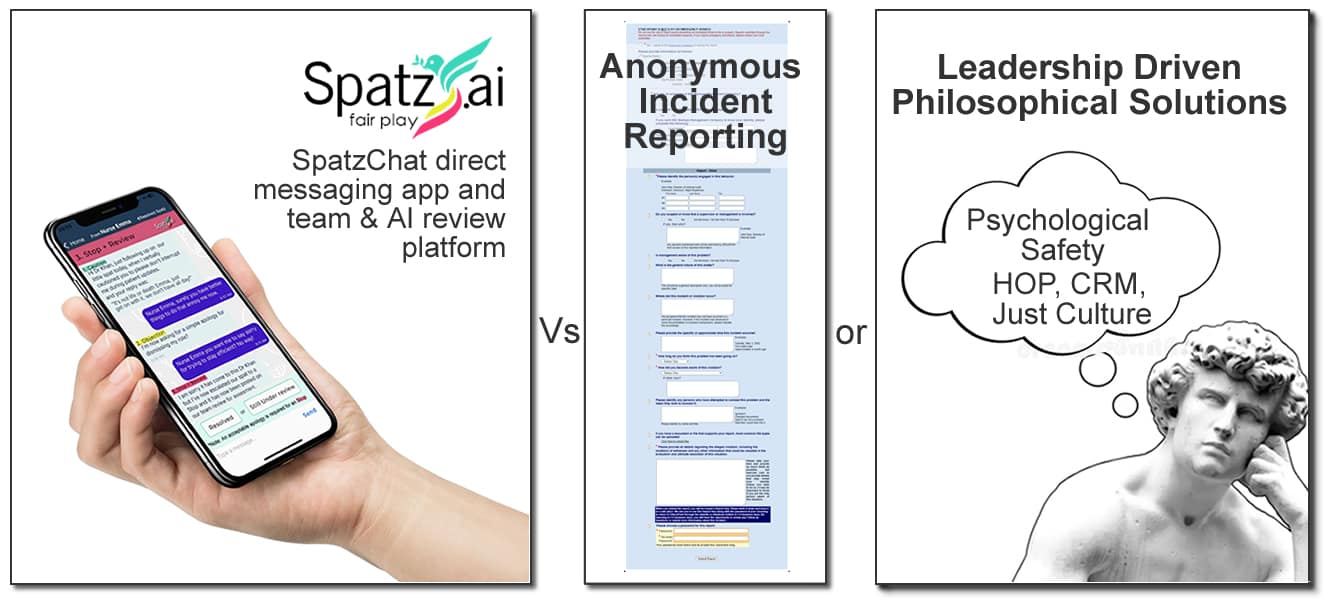Our Competition Comparison

SpatzAI Has No Direct Competition
SpatzAI does not compete directly with:
- Mediation tools.
- Incident reporting tools
- Traditional HR tools.
It competes with:
- Silence.
- Avoidance.
- Manager or HR-centric or control
- Reactive processes
There does not appear to be any existing tool that combines real-time peer intervention with a collective team and AI review process in this way.
How SpatzAI Stacks Up
SpatzAI is unusual because it sits in everyday peer-to-peer messaging, lightly captures micro-events, escalates in a controlled manner, and routes them into a transparent team and AI review cycle, when needed.
- A shared language for calling out behavior and misunderstandings in real-time.
- A controlled and protected escalation path that bypasses management.
- A recorded data trail so patterns of behavior and system weaknesses can be seen.
- A documentation device to avoid “he said, she said” verbal complaints.
- A peer-review mechanism that allows for reflection and correction.
- A repeatable process that does not rely on a particular leader or culture.
Why SpatzAI’s Solution is Uncommon
Most safety or team-culture models are either:
- Philosophically driven by leadership (HOP, Just Culture, psychological safety)
“If I was in a team and I knew our psychological safety was depended on how our manager felt on the day, then I don’t think I would feel very safe. Making one person responsible for a team’s psychological safety, to me is a house of cards ready to collapse.” - Heavy reporting systems (incident management, HR platforms, surveys).
“Heavy reporting tools are too slow and burdensome for minor behavioral issues.
They can anonymously escalate small slips into formal cases, creating fear and defensiveness.
This prevents teams from addressing everyday friction early and directly, when it is easiest to resolve.”
SpatzAI’s Key Features and Functionality
- Conflict Resolution Mechanism: The toolkit provides a structured, 3-step messaging process within its Spatz Chat™ app for addressing issues:
0. Verbal Caution → 1. Caution → 2. Objection → 3. Stop → Team Review.
This embedded escalation pathway allows team members to proactively monitor and course-correct discussions before they escalate into toxic conflicts. - Seamless Integration: It functions as a “plug-n-play” solution by integrating with existing team communication platforms like Slack and MS Teams, making it a part of daily routines rather than an external training module.
- Psychological Safety: The primary goal is to create a psychologically safe environment where team members feel comfortable collaborating and providing feedback without fear of negative repercussions.
- AI Review Platform: The system is backed by a Spatz Team-assist & AI Review platform which documents every micro-conflict and its resolution. This data is tracked to identify patterns, inform future prevention efforts, and ensure fairness in the resolution process.
- Empowerment and Transparency: The toolkit encourages peer involvement, shared accountability, and the setting of team norms, empowering employees to address micro-conflicts and misunderstandings themselves.
By providing a structured, real-time method for addressing minor issues, the SpatzAI toolkit aims to prevent small problems from escalating into major conflicts, ultimately leading to more productive and harmonious teams.
The Result (And So What?)
We believe that everything else—fairness, objectivity, accountability, psychological and physical safety—emerges from the use of SpatzAI’s simple chat app and team review communications structure.
